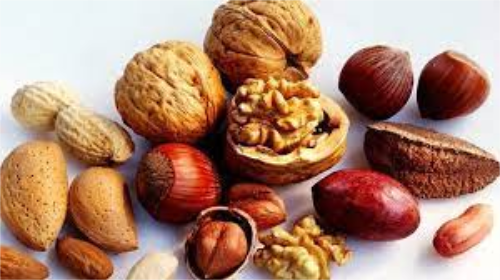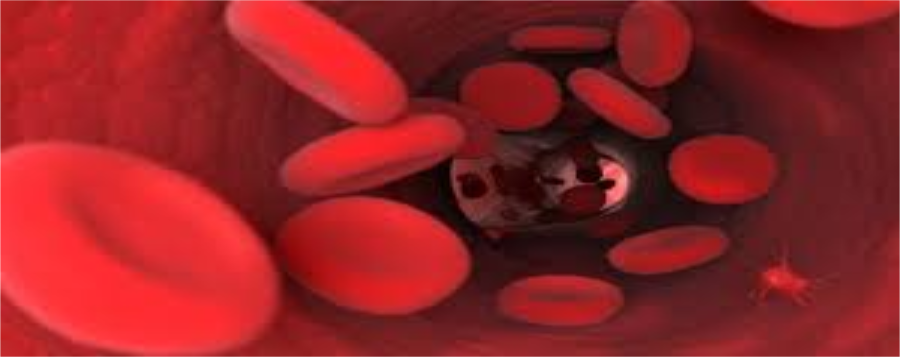Urolithin A are natural compounds that are metabolite compounds produced by intestinal bacteria that convert ellagitannins to improve health at the cellular level. Urolithin B has gained the attention of researchers for its ability to improve intestinal health and reduce inflammation. Urolithin A and urolithin B have related properties, but they are have some distinct differences. What are the specific differences you, let's find out!
In recent years, scientists have been studying the health benefits of urolithin, a natural compound that is a metabolite compound produced by the conversion of ellagitannins by intestinal bacteria. Its precursors are ellagic acid and ellagitannins, which occur naturally in several food sources such as pomegranate, guava, tea, pecans, nuts, and berries such as strawberries, black raspberries, and blackberries. In addition, urolithin A , a natural polyphenol, is of interest as a potent antioxidant and anti-inflammatory agent with good health benefits.
Studies investigating the effects of UA on cellular functions and biological pathways have shown that it has multiple mechanisms of action. Studies have also found that UA activates mitochondrial autophagy, a process that removes damaged mitochondria from the cell and enhances energy production. This action is particularly relevant to aging-related diseases, as dysfunctional mitochondria lead to the accumulation of oxidative stress and inflammation. UA also regulates the expression of genes involved in oxidative stress response, DNA repair and apoptosis, which are essential for maintaining cellular integrity and preventing cancer.
Another interesting aspect of UA is its potential as a senescence scavenger, which means that it can selectively induce apoptosis in senescent cells, which are damaged cells that no longer divide but secrete harmful factors that harm neighboring cells and tissues. Senescent cells are associated with various aging-related diseases, such as arthritis, atherosclerosis and neurodegeneration. By selectively eliminating these cells, UA can delay or prevent the onset of these diseases and improve overall health.
Urolithins are a class of compounds known as ellagitannin metabolites, which are mainly produced by the gut microbiota. Among them, two molecules, urolithin A and urolithin B, have gained significant attention for their potential health benefits. These compounds are found in various fruits such as pomegranates, strawberries, and raspberries. In this blog, we will take a closer look at the related properties of urolithin A and urolithin B.
Urolithin A is the most abundant molecule of the urolithin family, and it has been well-researched for its antioxidant and anti-inflammatory properties. Moreover, studies have suggested that UA could improve mitochondrial function and prevent muscle damage. UA is also known for its potential anti-cancer properties. Research has shown that UA could inhibit cell proliferation and induce cell death in various cancer cell lines, including prostate, breast, and colon cancer cells.
On the other hand, urolithin B has gained researchers' attention for its ability to improve gut health and decrease inflammation. Studies have shown that UB could enhance gut microbial diversity and reduce pro-inflammatory cytokines, such as interleukin-6 and tumor necrosis factor-alpha. Furthermore, UB has also been discovered to have potential neuroprotective properties, as studies have indicated that it could help prevent neurodegenerative diseases such as Parkinson's and Alzheimer's.
Despite their related properties, UA and UB have some notable differences. For instance, UA has been shown to be more potent as an anti-inflammatory and antioxidant agent than UB. On the other hand, UB has been found to be more effective in the prevention of obesity-related complications, such as insulin resistance and adipocyte differentiation. Additionally, unlike UA, UB has not been extensively studied as an anti-cancer agent.
The mechanism of action for UA and UB is also different. UA activates the Peroxisome proliferator-activated receptor gamma coactivator 1-alpha (PGC-1α) pathway, which plays a role in mitochondrial biogenesis, while UB enhances the AMP-activated protein kinase (AMPK) pathway, which is involved in energy homeostasis. These pathways contribute to the beneficial effects of these compounds on health.
Despite the exciting benefits of UA and UB, there are still limitations to their use. For instance, the bioavailability of these compounds is still relatively low, and their pharmacokinetics are not well understood. Moreover, the effect of these compounds on humans is yet to be fully elucidated, as most studies have been conducted in vitro or in animal models. Nevertheless, the existing research suggests that UA and UB could be promising candidates for developing functional foods or supplements to support overall health and prevent disease.
Urolithin A. This tiny molecule found naturally in certain fruits and nuts is popular for its purported ability to improve everything from muscle growth to brain function. Urolithin A is a metabolite, which means it is a byproduct of other compounds in the body. Specifically, it is produced when intestinal bacteria break down ellagitannins, which are found in certain foods such as pomegranates, strawberries and walnuts. But here's the interesting part: not everyone has the gut bacteria needed to produce urolithin A. In fact, studies have shown that only about 30-50% of people can produce this molecule naturally. This is where supplements come in handy.
So, what are the benefits of urolithin A? Well, one of the biggest claims is that it can help improve muscle health. A study published in the journal Nature Medicine found that when rats were given urolithin A, they had a 42% increase in endurance and a 70% increase in muscle mass. While these results are certainly impressive, it's worth noting that this was a small study and more research is needed to confirm these findings in humans.
But that's not all that urolithin A is said to do. It has also been shown to improve mitochondrial function. Mitochondria are essentially the power plants of cells, responsible for generating energy that the body can use. As we age, our mitochondrial function begins to decline, which can lead to many health problems. However, early research suggests that urolithin A may help slow this decline, potentially improving overall health and extending life expectancy.
As if that weren't enough, urolithin A has also been shown to have cognitive benefits. A study published in the journal Scientific Reports found that when rats were given urolithin A, their memory and learning ability improved. Researchers believe this may be due to the molecule's anti-inflammatory effects, which help protect brain cells from damage.
Urolithin B, a compound found in various berries and pomegranates, is known for its potential benefits in improving metabolic health and extending life span. Recent studies have shown that urolithin B has anti-inflammatory and antioxidant properties that can help prevent chronic diseases and improve overall health.
1. Anti-inflammatory properties
Chronic inflammation is a major cause of many diseases, including heart disease, diabetes and cancer. Urolithin B has anti-inflammatory properties that help reduce inflammation in the body, thereby reducing the risk of chronic disease. One study found that urolithin B significantly reduced inflammation in mice with inflammatory bowel disease, suggesting its potential efficacy in treating humans with similar diseases.
2. Antioxidant properties
Urolithin B is a potent antioxidant, which means it can help protect the body from oxidative stress, a process that damages cells and promotes the aging process. Urolithin B helps prevent oxidative damage by neutralizing free radicals, which can cause cellular damage and lead to chronic disease. One study found that urolithin B reduced oxidative stress in rodents, further supporting its potential as an anti-aging supplement.
3. Promote muscle health
Urolithin B has been shown to stimulate mitochondrial autophagy, a cellular process that helps eliminate damaged mitochondria from cells. This process helps to improve overall muscle health and function, making it a potential supplement for those looking to improve physical performance. One study found that urolithin B improved muscle function and strength in mice and humans.
4. Supports cognitive health
Urolithin B has been shown to support cognitive health by promoting neuroplasticity, a process that helps the brain adapt to new information and can improve cognitive function. One study found that urolithin B improved cognitive function and enhanced memory in rats.
5. Potential longevity benefits
Recent studies have shown that urolithin B has the potential to promote longevity by improving metabolic health, reducing inflammation, and protecting against oxidative stress. One study found that urolithin B increased lifespan in C. elegans, a species of nematode worm, supporting its potential benefits for promoting longevity.


1. Pomegranate
Pomegranate is one of the best sources of urolithin. Researchers have found that pomegranate juice can increase blood levels of urolithins A and B. In addition, pomegranates have other health benefits, including anti-inflammatory and antioxidant properties.
2. Berries
Berries such as strawberries, raspberries and blackberries are also good sources of urolithin. Studies have shown that berry consumption can increase blood levels of urolithin A and B.
3. Nuts
Walnuts and pecans and other nuts are also a good source of urolithin. A study found that consumption of nuts will increase the level of urolithin A and B in the blood.
Urolithin A and B are natural compounds present in certain foods, they have many health benefits. These compounds have anti-inflammatory properties, improve mitochondrial and muscle health, and promote cognitive health. Pomegranates, berries, nuts and ellagitannin supplements are some of the best food sources that can provide urolithins. Including these foods in your diet can help you unlock the benefits of urolithins A and B and promote healthy aging.
Post time: Jun-05-2023







